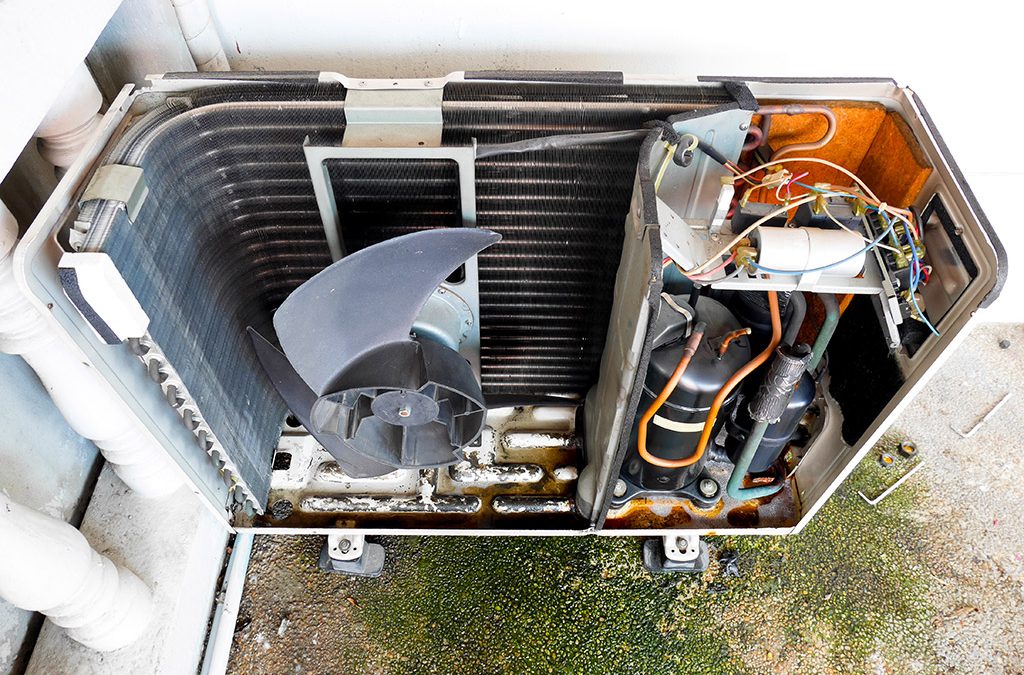The air conditioner’s compressor is one item that occasionally needs maintenance but is otherwise essential to the unit’s smooth operation. A well function compressor is essential for providing the cool air required for comfortable living. Some potential causes of AC compressor failure are discussed below.
1. Electrical Problems:
Electrical problems can be extremely expensive to fix because they can destroy your house air conditioner’s compressor and other components. If an electrical malfunction occurs, your body will accumulate harmful acids.
However, electrical issues can be avoided by planning regular air conditioner tune-ups. Compressor issues frequently stem from electrical malfunctions. Particularly, when the condenser’s fan is on but the compressor is not working, the device is receiving power.
Short-circuiting your home, damaging its structure, starting a fire, or even injuring yourself are all very real possibilities if you attempt this without the proper information. Only HVAC technicians with the right training and certification should attempt electrical repairs.
2. Excessive Amount of Refrigerant in the Air Conditioner:
Unqualified HVAC professionals frequently utilize the incorrect refrigerant for your system, which is analogous to installing an inappropriately sized suction pipe. Do not attempt AC maintenance or fixes without first consulting an experienced professional.
Overfilling the air conditioners with refrigerant is a typical problem that is often missed by inexperienced professionals or homeowners. Your air conditioner’s compressor will be harmed by this problem.
3. Loss of Chilled Air:
The refrigerant in your air conditioner could leak if the lines carrying it developed fractures and holes over time. Your house air conditioner will stop working if the refrigerant level drops too low because the compressor will have to work harder to move the remaining refrigerant through the system. Signify that refrigerant is leaking out of the system at some point. Leaks in compressors commonly occur at the shaft seal, in the hoses, on the O-rings, and in the gaskets.
They are not always obvious and you might need a technological leak detector to find one. The oil mist carried by the refrigerant helps to keep moving parts lubricated. The compressor isn’t the only component that could be damaged if the air conditioner can’t complete its cooling cycle due to a lack of refrigerant.
4. Pollutant Penetration:
The compressor for a centralized cooling system is typically situated in an outdoor condenser unit or atop the ceiling inside the condenser coils, both of which can be entry points for contaminants. Dust, leaves, dirt, bird poop, and soot are just some of the impurities that can make their way inside your air conditioner if it sits outside for extended periods of time.
The compressor could break if this stuff gets inside it. Only gaseous refrigerant should be compressed by the compressor. The compressor could be damaged if it attempted to pump anything else. Contamination to your compressor can occur if oil gets into unintended places, as can happen in the event of an oil leak.
In addition to an air, moisture and grime, these impurities can wreak on your compressor. Such as, moisture can lead to the formation of rust, which, when combined with the refrigerant, can cause problems in the compressor.
5. Suction Lines That Are Too Small:
Because of the work of an incompetent technician, this accident occurred. Damage to your air conditioner’s compressor could be caused by a suction line which is either too small as well as too large.
6. Clogged Drainage Systems:
A decrease in the effectiveness of the cooling system is the very first sign that there is a problem with the suction lines of your unit. If the problem is not detected in its early stages, it can eventually damage the compressor in your air conditioner. This could happen if the temperature and pressure inside the compressor continue to rise.
7. Mud-Clad Windings:
This takes place when the condensation coil accumulates a layer of minerals, dirt, and grime on its surface. Because of this, the air conditioner fails to remove a sufficient amount of heat from the area, and as a consequence, it must run nonstop throughout the day. As a direct consequence of the increased pressure and temperature, the compressor breaks down as a result of overheating.
8. Airborne Dust and Debris:
The presence of a significant number of pollutants in the environment may be responsible for the breakdown of a compressor. Compressors in air conditioners are susceptible to damage from a wide variety of contaminants, including dirt, grime, leaves, debris, acidic substances, and even the feces of birds, if they are not properly maintained.
9. Problems with Oil as a Lubricant:
Lubricant levels operate in a manner not dissimilar to that of refrigeration levels. Compressors used in air conditioning systems are especially susceptible to problems that can be brought on by either an excessive amount of oil lubrication or an insufficient amount of oil. As part of the routine maintenance that should be performed on your air conditioner, the lubricant level should be checked on a regular basis by a qualified expert.
10. The Capacitor in Your Device is bad:
Before touching a capacitor, you need to make sure that it has been discharged properly because they can store a significant amount of electrical energy. The capacitor is what allows the compressor to power up and keep running, but it is possible for them to become inoperable for a variety of reasons, including electrical surges or a failure on the part of the actual unit.
The good news is that changing a capacitor does not require a lot of effort and does not require a lot of money; the negative aspect is that this task must also be done by someone who is knowledgeable about electrical systems.


